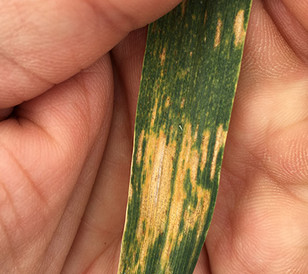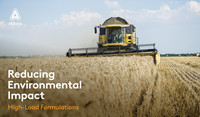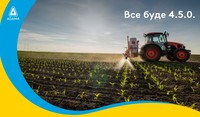
Dealing with the shifting fight against fungus

ADAMA’s crop manager Terry van Loon explains that resistance is a serious and growing threat to crop protection as the range of fungicides available is dwindling. “Market withdrawal and a lack of new active ingredients have seriously reduced the active ingredients available to combat fungal pathogens,” says Terry. “With resistance reducing the efficacy of some fungicides, we urgently need to protect the chemicals that we still have available.”
However, despite the warnings, growers still cannot easily appreciate how serious the situation is in their region. Management techniques that might have prevented resistance development are being overlooked because fungicides lose their efficacy to Septoria, gradually in a natural process called shifting.
It is so gradual that farmers do not realise the product is working less and less each year. Only when pesticides have been applied and failed to treat Septoria does it become clear what is going on. T hat is where ADAMA’s Septoria monitoring programme can help. By monitoring the sensitivity of the pathogen to different active ingredients, ADAMA helps to raise awareness of the shifting process and highlights the potential serious threat for cereal growers.
The programme gives farmers an insight into the extent of fungicide resistance in their fields. Being able to demonstrate the scale of resistance, and its development from year to year, encourages farmers to use fungicides more carefully and to adopt other measures of Septoria control. The sheer scale and extent of the programme robustly underlines the seriousness of the situation.
“In the summer, we take samples from 30 plant leaves in 100 fields right across Europe,” explains Terry. The samples are then dispatched to a central laboratory in Germany for testing against different triazoles or other compounds. The fungal pathogen is isolated from the plant matter and its response is compared to a laboratory population of Septoria tritici that has never been exposed to pesticides.
The results of the tests are collated and the information is sent to ADAMA’s network of product distributors ahead of the new growing season. “Our distributors, now have accurate and tangible results to back up any warnings to the grower of fungicide resistance in their area,” he says. “The distributor can then advise farmer customers with authority, emphasising what measures need to be taken such as the ideal tank mixes, timings and management techniques.”



